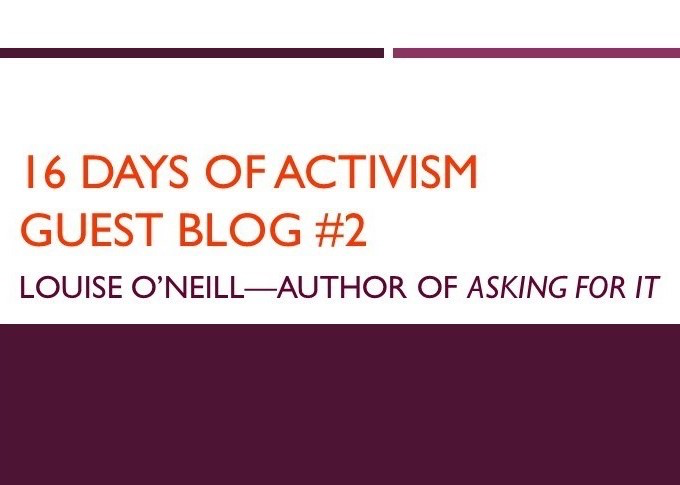#16DaysofActivism – Guest Blog – Louise O’Neill
29 November 2017

In the wake of the Harvey Weinstein allegations and the #MeToo movement on social media, it feels as if there a seismic change is about to take place. And while it has been cheering to see women refuse to be silenced or shamed as they raise their voices and share their stories, it has also highlighted the heart-breaking pervasiveness of sexual violence in today’s society. It seems as if no woman will escape unscathed without experiencing some form of harassment, from the relatively ‘minor’ (being catcalled on the street) to the devastating (rape and sexual assault.) After a lifetime of this kind of treatment, many women almost begin to see sexual harassment as the price that they must pay in order to move through the world in a female body. And it is exhausting.
While the revelations of the last few months have merely confirmed women’s own experiences, the reactions of others have been interesting. Many men have also come forward to share their stories of harassment, but I have seen others expressing fear that women speaking out is a ‘witch hunt’ and is creating a culture where people will be afraid to say or do anything lest it be misconstrued as harassment. In my opinion, this demonstrates an intrinsic lack of understanding around sexual violence, and the issue of consent in particular. It’s very simple – if you don’t want to be accused of sexually harassing someone, then don’t sexually harass them. Consent is the crux of the matter – does the other person want to have sex with you? Do they want you to flirt with them? Do they want you to touch them? Is their consent given freely, without fear of retribution because you are in a greater position of power? Consent is enthusiastic, conscious, and utterly unmistakeable. There isn’t any such thing as a ‘grey area’ if you are truly listening to what the other person is saying.